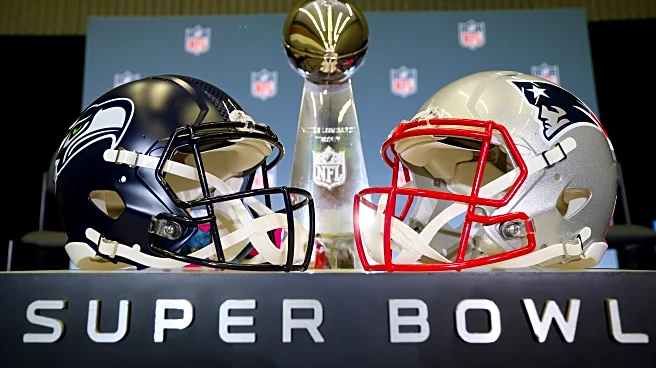What's Happening?
Meta Platforms Inc., TikTok Inc., YouTube, and NetChoice have filed lawsuits against the State of California, challenging the Protecting Our Kids from Social Media Addiction Act. This law aims to restrict
personalized social media feeds for minors aged 13 to 17, arguing that such features contribute to social media addiction among young users. The companies claim the law violates the First Amendment by imposing content-based restrictions on speech and algorithmic content curation. The Ninth Circuit Court has partially upheld the law but ruled that some provisions, like banning 'like' counts for minors, are likely unconstitutional. The legal battle highlights the ongoing tension between tech companies and government regulators over the regulation of online platforms.
Why It's Important?
The outcome of this legal challenge could have significant implications for how states regulate social media content delivery to minors. If California's law is upheld, it may set a precedent for other states to implement similar regulations, potentially altering the landscape of social media usage among young people. This case also underscores the broader debate over free speech rights and the responsibilities of tech companies in protecting young users from potentially harmful online experiences. The decision could impact the business models of social media platforms, which rely heavily on personalized content feeds to engage users and generate revenue.
What's Next?
The legal proceedings in the Northern District of California will continue to unfold, with both sides presenting their arguments. The tech companies are represented by prominent law firms, indicating the high stakes involved. The court's decision will be closely watched by other states considering similar regulations and by tech companies concerned about the implications for their operations. The case may eventually reach higher courts, potentially influencing national policy on social media regulation.
Beyond the Headlines
This legal battle raises ethical questions about the role of social media in society and the balance between protecting young users and preserving free speech. It also highlights the growing concern among lawmakers and public health advocates about the impact of social media on mental health, particularly among minors. The comparison of social media algorithms to tobacco products by Judge Ryan D. Nelson underscores the perceived severity of the issue.










